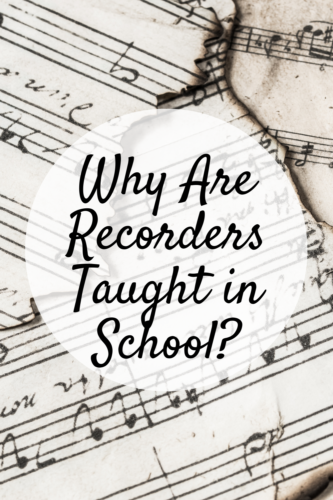

For many, it may have been the recorder that ignited their musical interest. A lot of today’s students have limited access to instruments, but technology is another story.
Aside from becoming any instrument you want it to be, a recorder is affordable, accessible, and portable. The only downside is that you can’t play it like an instrument, but we’ll take what we can get.
There are tips to playing the recorder that allows you to benefit from the device even more. Speaking of its perks, they tend to be the main reason recorders are a staple in music education. When someone in music talks about where their music dreams all started, it likely involves this handy accessory.
When you don’t own an instrument, recorders may teach you a few things required to learn such an instrument effectively. That way, you won’t be starting from scratch when you eventually own your dream instrument. Still, that’s not all recorders are capable of providing, as the below section proves:
Your lungs are the foundation for playing percussion and wind instruments. Sound is created by the air released through the mouthpiece of a particular instrument. That means not only should you know how to position yourself for optimal airflow, you must also learn how to build power in those pipes.
Recorders allow you to listen carefully to music and even record your own voice. It’s a great accessory for teaching singing, as you can pause or stop the recording to really listen and assess your breath control.
Vital to learning music is developing an “ear” for it. It is what allows you to check and adjust the tuning of instruments regularly and correctly.
Listening to recordings opens your eyes and ears to how the different parts of music interact with and support each other. Whether performing solo or in a group, you must understand the role your instrument plays in the whole piece. In that way, you have more control over your delivery and are less prone to doing uncalled-for over-the-top segments.
For “sound” to come out the way it should, one should be able to understand his role in its formation. You can only achieve this through frequent listening.
Reading musical notes can be confusing if the actual piece’s recording doesn’t accompany it. If you’re learning from scratch, listening to music being played helps you better understand the music notes and their durations. And that’s just the beginning.
Reading music is the foundation upon which all other music pathways are built. After all, everything falls back to the basics, which is musical notation.
Play and performance aren’t the only ways to develop aural skills; you get it from constantly listening to recordings as well. Whether these be voice or instrumental recordings, they help you pick up on the nuances of each artist or player.
Next, learn about how to form your own sound from these more experienced professionals. You eventually develop a more attuned sense of hearing capable of detecting all kinds of uniqueness in a piece. Thus, it can become easy for you to separate the remarkable from the common.
A recorder can fill the gap preventing you from learning music optimally. In turn, you develop confidence in yourself and your skills. For some, hearing themselves play or sing may serve as some type of discouragement. However, it should translate into the recording when you’re actually good at what you do.
The fruit of your talent and hard work should shine through together with the areas that need improvement. That said, the passion and determination to succeed in your chosen field should help you work through those weaknesses and bad habits effectively.
As mentioned, recorders can showcase both the good and the bad in your music. Got bad habits and mistakes that need correcting? Some of them can be as obvious as the most memorable parts of your performance.
Instead of being discouraged by this, use it as an opportunity to grow and improve. Those singing or instrumental mishaps that typically plague your piece can be avoided when you know exactly when and how they happened.
One of the biggest reasons recorders are taught in school has to do with tradition. A device that has been the catalyst of so many music dreams and aspirations isn’t something that’s going to fade into obscurity. Instead, it’s only going to come back stronger than ever.
We see that happening today, with how smartphones and computers are pre-configured with recording features. We also see that in top-notch recording software programs that are easily accessible and affordable. It’s even present in our home studios. Like music itself, it’s everywhere.
Fryer oil is a vital part of any kitchen serving crispy, golden-fried foods. Whether you're…
Electricity is a fundamental part of our daily lives. Whether it's powering our household appliances,…
Introduction Direct-to-Film (DTF) printing has revolutionized the custom apparel industry with its versatility and high-quality…
The vaping world has seen countless innovations over the years, but one device that stands…
Tirana, the Albanian capital, is a multicultural, culturally wealthy, and energetic city. Whether you are…
M4 Markets Reviews with Screenshots and a Step-by-Step Analysis of This Broker’s Functionality M4Markets is…
This website uses cookies.
View Comments
There have been studies showing that when a young person learns to play a musical instrument their brain grows more physical connections between the two sides of the brain than children who don't learn to play. That's a good reason, too, to teach the recorder!